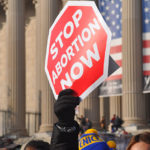
A global survey in 26 countries found Generation Z is often more religious than baby boomers and frequently in surprising nations.
By Aaron Earls
Who is more likely to say they believe in God, those born before 1965 or those born after 1996? As a general rule in the United States, the younger the person, the less likely they are to say they believe in God, but that’s not always the case globally.
An Ipsos Global Advisor study of 26 countries found Gen Z is often more religious than baby boomers and frequently in surprising places. Of the 26 nations surveyed, 12 are majority Christian, including the United States. Among the other 14 countries, one is majority Muslim, two have a majority of another religion, two are a majority irreligious, and nine have no majority for any specific religious preference.
As an overall average among the 26 countries, 46% of the people identify as Christian, 6% as Muslim, and 14% as any other religion. Another 29% have no religion, and 5% prefer not to say.
Some limitations exist with the global data and among certain nations. “Samples in Brazil, Chile, Colombia, Mexico, Peru, Singapore, South Africa, Thailand, and Turkey are more urban, more educated and/or more affluent than the general population. The survey results for these countries should be viewed as reflecting the views of the more ‘connected’ segments of their population,” according to Ipsos. India’s sample is also limited.
But numbers for Australia, Argentina, Belgium, Canada, France, Germany, Great Britain, Hungary, Italy, Japan, the Netherlands, Poland, South Korea, Spain, Sweden, and the U.S. are representative of all adults in those nations.
Relationship with religion
In general, in countries where religion has widespread acceptance, the next generation is more likely to reject it. But in countries with less religious practice overall, Gen Z is more likely to be religious. “In nearly all countries where at least one-third of adults believe in God as described in holy Scriptures, Gen Zers are less like than boomers to hold such beliefs,” said the Ipsos report, “whereas the trend is reversed in less religious countries.”
Globally, baby boomers (52%) are more likely to identify as Christian than Gen Z (42%). But boomers (32%) are also more likely than any other generation to say they have no religion, according to Ipsos. Click To TweetGlobally, baby boomers (52%) are more likely to identify as Christian than members of Gen Z (42%). But boomers (32%) are also more likely than any other generation, including Gen Z (29%), to say they have no religion.
In half of the countries, including the U.S., boomers are more likely than Gen Z to identify specifically as a Protestant Christian. But in the other 13 countries, members of Gen Z are more likely than boomers to say they’re a Protestant or evangelical Christian. In 14 nations, Gen Z is more likely than boomers to identify as having no religion, while in 12 countries the younger generation is less likely.
Relationship with religious practice
In 17 nations, boomers are more likely than Gen Z to say they pray somewhere other than a place of worship. But in nine countries, Gen Z is more likely to be praying outside of a religious building, including in Sweden and Germany where the younger generation is much more likely to pray in those contexts.
Gen Z is more likely than baby boomers to go to a place of worship in 16 countries, including in the United States where there is a 6-point gap in favor of Gen Z worship attendance. Other nations where Gen Zers are more likely to go to a place of worship include Sweden (+34-point gap), Germany (+28), Great Britain (+22), France (+21), and Canada (+20).
Gen Z is more likely than baby boomers to go to a place of worship in 16 countries, including in the U.S., where there is a 6-point gap in favor of Gen Z, according to Ipsos. Click To TweetThe report states that “in countries where religious practice is high, older adults tend to engage more than the young, while in countries where religious practice is low, young people tend to have higher engagement.”
Relationship with religious beliefs
When examining religious beliefs, Gen Z (42%) is more likely than boomers (35%) and the global average (40%) to say they believe in God as described in holy Scriptures. The youngest generation (19%) is also less likely than boomers (23%) and the global average (21%) to say they don’t believe in God or a higher power of any kind.
In 15 countries, including the U.S., boomers are more likely than Gen Z to say they believe in God as described by Scripture. Within the 14 nations where more than a third of adults believe in God, boomers are 10 percentage points more likely than Gen Z to believe in God.
Gen Z (42%) is more likely than boomers (35%) and the global average (40%) to say they believe in God as described in holy Scriptures, according to Ipsos. Click To TweetIn 12 nations, Gen Z is more likely to accept a Scripture-described God, including places like Sweden (+28) and Great Britain (+11). Similarly, in 12 countries where less than one-third of adults believe in God, Gen Z is 5 percentage points more likely than boomers to believe in God.
Globally, Gen Z is more likely than boomers to believe in supernatural spirits (+21), hell (+21), heaven (+19), and the devil (+19).









